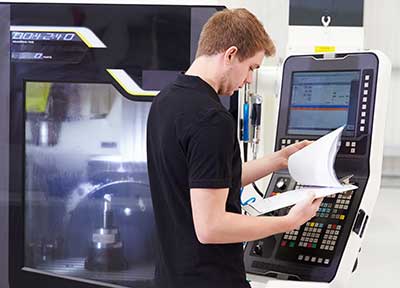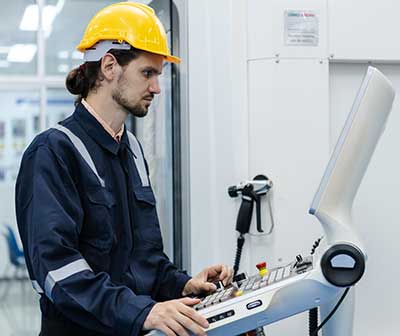CNC Machinists Staffing
RSS is Your Trusted Source for CNC Machinists
With more than three decades of expertise in staffing, we have an in-depth understanding of the unique challenges and requirements associated with operating CNC machines efficiently and safely. We can provide your company with skilled, experienced, and reliable CNC machinists who seamlessly integrate into your operations.

Regional Supplemental ServicesOn-Demand Reliable Workforce

CNC Machinists Staffing
When you need to fill a temporary void, accommodate seasonal shifts in demand, or manage a time-sensitive project, RSS is here to assist. Our flexible staffing services are designed to meet your needs, ensuring smooth CNC machine operations.
Rapid Staffing Services: We offer quick staffing solutions for immediate needs, ensuring your operations continue smoothly while adhering to safety standards.
Tailored Staffing Solutions: The RSS team works with you to develop a staffing plan that aligns with your operational goals and budgetary constraints.
Reliable and Experienced CNC Machinists


Positions We Fill
Machinst
CNC Machine Operator
CNC Lathe Machinist
CNC Set-Up Technician
CNC Programmer
Master CNC Machinist
CNC Router Operator
CNC Plasma Programmer
Why RSS?
Adaptability & Reliability: Our staffing solutions are crafted to flexibly meet the changing demands of your CNC operations, ensuring you have the skilled personnel necessary for seamless process management.
Cost-Efficient Approaches: Using RSS for your temporary staffing requirements reduces the costs and hurdles associated with recruiting and training. Our approach is cost-effective, allowing for better resource allocation.
Emphasis on Safety: The safety of your workspace is our top priority. We assure that each CNC operator we supply adheres to the strictest safety protocols, minimizing hazards and promoting a safe working environment.
Get in Touch
Contact RSS today to discover how our specialized temporary staffing services can assist in maintaining smooth, efficient, and secure operations
Client Testimonials
Frequently Asked Questions
What training does a CNC Machinist require?
Training for a CNC machinist typically involves a combination of education, technical training, and hands-on experience. The goal is to equip individuals with the skills needed to operate, program, and maintain CNC (Computer Numerical Control) machines, which are used to cut, shape, and finish metal and other materials. Here’s a breakdown of the training requirements:
1. Educational Background
- High School Diploma or GED: The foundational requirement for most CNC machinist training programs.
- Mathematics: A solid understanding of basic math, algebra, and geometry is essential for understanding machining processes and CNC programming.
2. Technical Training
- Vocational or Technical Schools: Many machinists start training at vocational schools, technical colleges, or community colleges that offer machining technology or CNC operations programs. These programs typically last from several months to two years and include classroom instruction and hands-on training.
- Apprenticeships: Some machinists enter the field through apprenticeship programs combining on-the-job training with classroom instruction. Apprenticeships are sponsored by employers, labor unions, or industry associations and can take up to four years to complete.
3. Certifications
- Certification Programs: Although not always required, certifications can enhance a machinist’s job prospects and credibility. Organizations like the National Institute for Metalworking Skills (NIMS) offer certifications validating a machinist’s skills in CNC programming, operation, and setup.
4. Skills Development
- CNC Programming: Learning CNC programming languages (e.g., G-code) is crucial for creating and editing programs controlling machine tools.
- Machine Operation and Maintenance: Operators must know how to set up machines for specific jobs, load materials, and perform routine maintenance and troubleshooting.
- Blueprint Reading: The ability to read and interpret technical drawings and blueprints is vital for manufacturing parts to specification.
- Quality Control: Machinists learn to use precision measuring instruments, such as micrometers and calipers, to inspect and ensure the quality of their work.
5. Continuing Education
- Technology Updates: Because manufacturing technology evolves rapidly, continuing education is essential for staying up-to-date with the latest machinery, software, and production techniques.
- Advanced Training: Experienced machinists may pursue further training in advanced machining techniques and CNC programming or even move into related fields such as CNC machine tool technology, manufacturing engineering, or management.
Are there training schools for CNC Machinists?
Yes, many training schools and programs are available for aspiring CNC machinists. These educational programs are designed to provide the foundational knowledge and hands-on experience necessary to operate and program CNC machines. Training for CNC machinists can be found in various types of institutions and formats, including:
Technical and Vocational Schools
These schools offer certificate and diploma programs in CNC machining, providing students with a comprehensive introduction to CNC fundamentals, programming, machine operation, and safety procedures.
Community Colleges
Many community colleges offer associate degree programs in manufacturing technology, machining, or related fields. These programs often include coursework in CNC operations, programming, CAD/CAM (Computer-Aided Design and Computer-Aided Manufacturing), and quality control.
Apprenticeship Programs
Apprenticeships combine on-the-job training with classroom instruction, allowing students to earn while they learn. These programs are often sponsored by employers, industry associations, or labor unions and can lead to full-time employment upon completion.
Online Courses and Programs
Online training programs and courses cover CNC machining principles, programming languages like G-code, and other relevant topics. These can be a good option for those looking to supplement their knowledge or for workers already in the field seeking to upgrade their skills.
Manufacturer-Specific Training
Some equipment manufacturers offer training programs for their specific CNC machines. These can be beneficial for machinists who work with or plan to work with a particular brand or type of machinery.
Key Components of CNC Machinist Training
- Fundamentals of machining: Understanding the basics of the machining process, including different types of materials, tools, and techniques.
- CNC programming: Learning to write and troubleshoot programs using CNC programming languages, such as G-code.
- Machine operation: Hands-on experience with setting up, operating, and maintaining CNC machines.
- Safety: Training on how to safely operate CNC machinery and maintain a safe working environment.
- Quality control: Techniques for measuring and ensuring the quality of machined parts, using instruments like calipers and micrometers.
When choosing a training program, it’s important to consider factors such as the curriculum, faculty expertise, facilities, and the program’s track record for job placement. Accreditation by a recognized body can also be an indicator of a program’s quality.
For Employers Looking for Staffing Solutions?
Employers please submit the form below regarding your need for staffing solutions.
